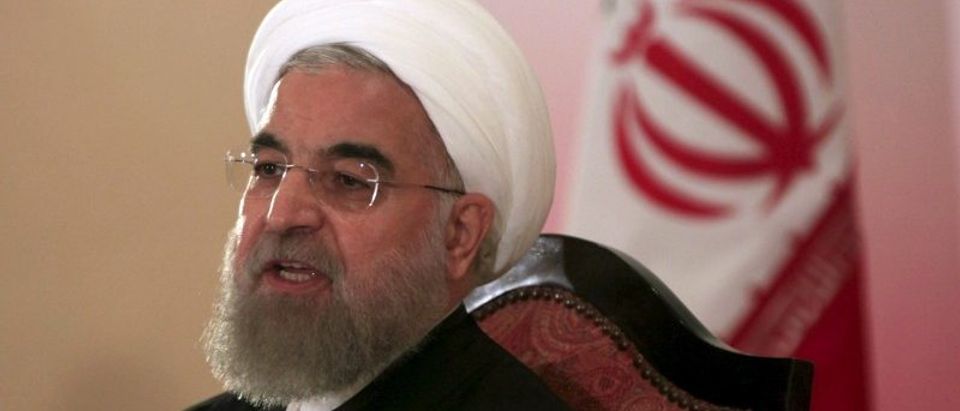The Obama administration and many journalists have been crowing about the success of the Iran nuclear deal, which was reached a year ago last week.
President Obama hailed the deal as having, “avoid[ed] further conflict and ma[de] us safer.”
But it’s becoming increasingly clear that, despite the rosy rhetoric that has accompanied last week’s anniversary, Iran has not lived up to its side of the bargain. It has committed numerous violations, and the administration has shown it’s all too willing to look the other way. While Obama doesn’t seem to understand the growing threat, it will be up to the next president to deal with the consequences of this botched negotiation.
The deal called on the Islamic Republic to curtail its nuclear program in exchange for billions of dollars in sanctions relief. When it was signed, Obama said it, “contains the most comprehensive inspection and verification regime ever negotiated to monitor a nuclear program.”
The International Atomic Energy Agency (IAEA) has issued two reports on Iran’s compliance, and, at first glance, it seems to be meeting its verification and monitoring requirements.
But there is evidence that the IAEA is going easy on Iran. The agency has provided less information in its reports on the regime’s activities than it did in those written before the deal, which means Iran may not be fulfilling its obligation of full transparency.
Moreover, confidential “side deals” were negotiated between Iran and the IAEA. One of them, the Associated Press later reported, was an unprecedented agreement allowing Iran to “self-inspect” one of its military complexes suspected of being used to develop nukes.
And the IAEA has not been given the necessary access to complete an investigation into Iran’s past nuclear work, which would allow it to verify the agreement by creating an accurate baseline of its nuclear development.
The agreement prohibits Iran from testing ballistic missiles capable of delivering nuclear weapons. But then it did exactly that, and with little pushback from the Obama administration. Iran test-fired long-range nuclear-capable ballistic missiles last October and November, in blatant violation of United Nations Security Council resolutions. And just two days before the anniversary of the agreement, Iran attempted to launch another long-range ballistic missile, this time using North Korean technology. Even Bank Ki-moon, secretary-general of the United Nations, has called Iran ballistic missile program “not consistent with the constructive spirit” of the nuclear agreement.
A recent report from German intelligence found that Iran has continued its “illegal proliferation-sensitive procurement activities” at a “qualitatively high level.” “This holds true in particular with regard to items which can be used in the field of nuclear technology,” the report added.
In addition, a report by the Institute for Science and International Security found that Iran’s Atomic Energy Organization had attempted to acquire carbon fiber, which is a key element used in constructing the centrifuges Iran needs to refine uranium. The report stated that the regime did not tell the international community of these efforts despite being required to do so under the nuclear agreement.
When the deal was struck, there was hope in some quarters that it would make Iran less hostile to the United States and Western values and encourage it to become more responsible in its dealings with the world. But that hasn’t happened either. Iran is still waging war across the Middle East, some by proxy, and is still sponsoring terrorist groups such as Hezbollah and Hamas.
Its human rights record is still abysmal. Leaders of 80 churches in the United Kingdom and U.S. published a letter recently stating that the “repression of Christians has not only continued but intensified during the presidency of Hassan Rouhani.”
While some in the administration, including President Obama, see the Iranians as potential friends, there’s no evidence that the regime wants to play nice. In fact, it regards hostility toward the U.S. as a fundamental value, and a vital part of maintaining its grip on Iranian society.
And that is why the deal won’t work. Obama was desperate to get a deal done to help secure his legacy—so desperate, in fact, that his administration is looking the other way as Iran violates the terms of the deal. How tragic: The nuclear deal was crafted to check Iran’s nuclear ambitions, but it may end up doing the opposite.
Former presidential candidate Gary Bauer is president of American Values and chairman of the Campaign for Working Families.


